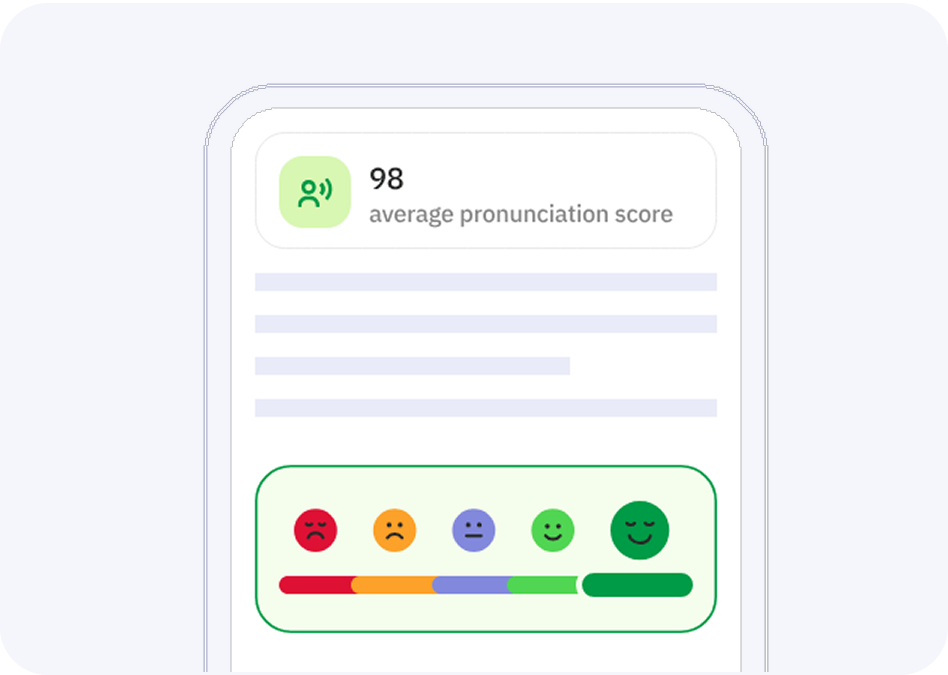Unlocking the Secrets of Spanish Idioms
Hola, language enthusiasts! Today, we’re embarking on an exciting expedition into the colorful world of Spanish idioms. Idioms are those quirky phrases that native speakers toss around, giving you a peek into the culture’s heart and soul. They often sound strange when translated literally, but they reveal the poetry, humor, and wisdom that languages hold.

The talkpal difference

Personalized Education
Every person approaches the study process differently. By leveraging Talkpal technology, we analyze the patterns of millions of learners at the same time to build highly effective educational structures. These insights allow us to create a curriculum that is fully customized to fit the specific needs and interests of every student.

Cutting-Edge Technology
Our main mission is to lead the way in providing a tailored educational journey for every user by utilizing the most recent developments in modern innovation. We strive to make high quality practice accessible to all through superior technical solutions and our advanced AI tutor.

Making Learning Fun
We have transformed the educational process into something truly entertaining. Since maintaining momentum can be difficult in an online setting, we designed Talkpal to be incredibly captivating. The platform is so engaging that users often prefer acquiring new skills with us instead of playing video games.
LANGUAGE LEARNING EXCELLENCE
The most efficient way to learn a language
Try Talkpal for freeSpanish Idioms
So, why should you care about Spanish idioms? Well, let’s say you’re chatting with a Spaniard, and they suddenly mention “no hay que buscarle cinco pies al gato.” You might be scratching your head, wondering why anyone would want to look for five feet on a cat. It’s moments like these where understanding idioms can be the key to unlocking a deeper connection with Spanish and its speakers.
El Mundo de los Refranes: A Window to the Spanish Spirit
Spanish idioms are charming windows into the Spanish spirit, encapsulating everything from cultural values to historical references. Each Spanish-speaking country has its own set of idioms, which can be as diverse as their cuisine. Whether you’re in the bustling streets of Madrid or the vibrant towns of Latin America, idioms add flavor to your conversations.
No Es Oro Todo Lo Que Reluce: Not Everything That Glitters Is Gold
Let’s jump right in with a familiar idiom that exists in many languages. “No es oro todo lo que reluce” reminds us that appearances can be deceiving. You might encounter a situation that looks promising on the surface, but remember to look beyond the glitter for the real value.
Más Vale Pájaro en Mano Que Ciento Volando: A Bird in the Hand is Worth Two in the Bush
Here’s an idiom that echoes the concept of cherishing what you have. “Más vale pájaro en mano que ciento volando” mirrors the English proverb “a bird in the hand is worth two in the bush,” emphasizing the idea of valuing the sure thing you have over many uncertainties.
Echar Agua al Mar: Pouring Water into the Sea
When you do something utterly pointless, you’re “echar agua al mar” — pouring water into the sea. This idiom serves as a vivid illustration of an act that adds no value because it’s redundant. Surely, there’s no need to add water to the vast ocean!
Ponerte las Pilas: Put Your Batteries In
If someone tells you to “ponerte las pilas,” don’t start searching for your remote control. This idiom means to be alert, to buckle up, or to get your act together. It’s a call to action, urging you to bring your A-game to whatever life throws at you.
Estar en Las Nubes: To Be in the Clouds
A daydreamer? Someone who’s lost in their thoughts? They’re “estar en las nubes.” Rather than being focused on the here and now, they have their head in the clouds, possibly dreaming up their next big adventure.
Tirar la Casa por la Ventana: Throw the House through the Window
When people are spending lavishly or celebrating without concern for expense, they’re “tirar la casa por la ventana.” It’s as if they’re throwing their possessions out of the window, a perfect metaphor for opulent indulgence.
Dar en el Clavo: Hit the Nail on the Head
Every so often, someone makes a point so precise that it’s like they’ve “dar en el clavo” — hit the nail on the head. This idiom celebrates the moments of clarity when someone’s words or actions are exactly right.
Ser Pan Comido: To Be Eaten Bread
If something is incredibly easy, you could say it’s “ser pan comido,” as simple as eating bread. This idiom is akin to the English “piece of cake,” painting a picture of effortlessness and ease.
The Mastery of Idioms: A Portal to Fluency
Mastering Spanish idioms isn’t just about expanding your vocabulary; it’s about gaining a deeper understanding of the heartbeats of Spanish cultures. When you can sling idioms with the best of them, you’re not just speaking Spanish; you’re living it. You’re connecting with people on a level that springs from shared knowledge and cultural appreciation.
Conclusion
Diving into idioms is like embarking on a lifelong language adventure. It requires curiosity, a sense of humor, and an openness to the richness of Spanish-speaking cultures. With every idiom, you unwrap a tiny gift of insight and connection.
At Talkpal, we believe that language learning is more than just memorizing words; it’s about immersing yourself in the culture and understanding its nuances. As you venture forth in your Spanish learning journey, keep an ear out for these idiomatic gems. They’ll not only pepper your language with authenticity but also offer you the joy of discovery, one quirky expression at a time.
So, queridos amigos, as you weave these idioms into your conversations, watch the faces light up around you. You’re not just speaking Spanish – you’re captivating hearts and minds, and that’s the true magic of language learning. Ahora, ¡a practicar esos refranes! Let’s practice those idioms!
The most efficient way to learn a language
Try Talkpal for freeFrequently Asked Questions
What exactly are Spanish idioms and why are they important?
Can I directly translate English idioms into Spanish?
How can Spanish idioms help me in everyday conversations?
What's the best way to learn and remember Spanish idioms?
What's an example of a Spanish idiom and its meaning?







